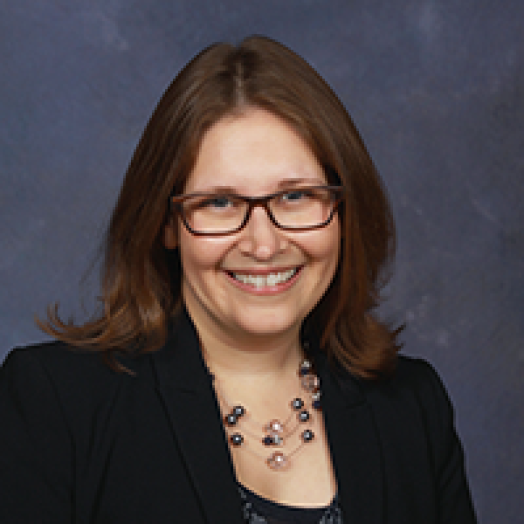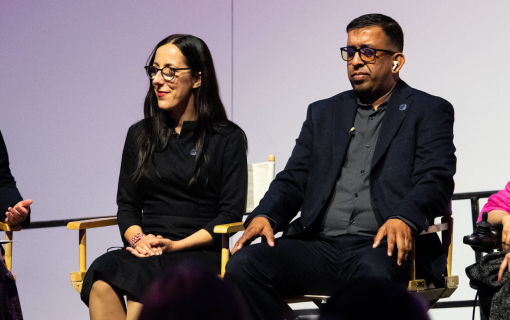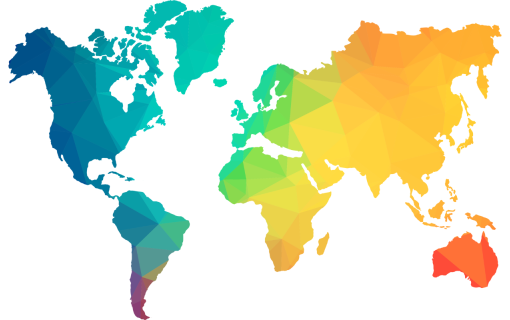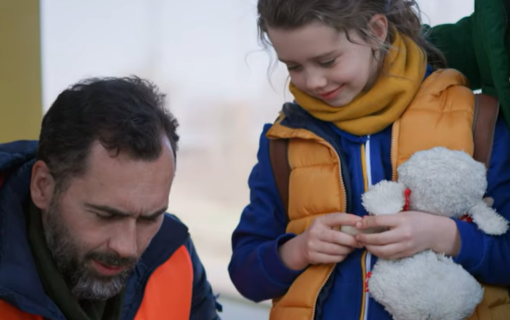IFES Celebrates International Day of Persons with Disabilities
The annual International Day of Persons with Disabilities, held on December 3, commemorates the human rights of persons with disabilities. This year we also celebrate the 10th anniversary of the United Nations Convention on the Rights of Persons with Disabilities (CRPD). For nearly 30 years, the International Foundation for Electoral Systems (IFES) has worked to support the political rights of men and women with disabilities, recognizing that all people should have an equal opportunity to contribute their voice within the political life of their communities.

The Libyan Arabic Sign Language electoral lexicon developed by IFES with local partners was the first in the region.
In 2016, IFES collaborated with disabled persons’ organizations (DPOs) around the world to increase the political participation of persons with disabilities through a number of initiatives:
Sign Language Lexicons
Recognizing that Deaf citizens often lack vocabulary to discuss political life, in 2015, IFES worked with local Deaf communities in Libya and Morocco to create the first sign language lexicons in Libyan Arabic Sign Language and Moroccan Sign Language. In each country, IFES collaborated with sign language experts to develop a manual and produce videos with examples of the signs. As part of this project, IFES Libya also introduced a mobile app that could be accessed by voters with disabilities through the Google Play store.

Women with disabilities vote for recommendations to PIANZEA in the Pacific Regional Disability Rights Dialogue.
Pacific Regional Disability Rights Dialogue
IFES organized the first regional disability rights dialogue on political participation in the Pacific Islands region. This conference brought together disability rights advocates and election management bodies to discuss political participation of persons with disabilities. Advocates voted on priority recommendations to make to the Pacific Islands, Australia and New Zealand Electoral Administrator’s (PIANZEA) network. For many participants, the regional dialogue provided the first opportunity to speak directly with election officials or advocates with disabilities. As a result of these DPOs’ advocacy, PIANZEA adopted language supporting the right of persons with disabilities to participate in elections on an equal basis as others.
Inclusive Poll Worker Manual
IFES designed the first-ever manual for poll workers on disability inclusion in Georgia, resulting in its distribution in polling stations across the country for the October 2016 elections. The manual provides practical guidance for poll workers to ensure access of persons with different types of disabilities, including etiquette, how to set up an accessible polling station, and information on Georgian electoral legislation that supports inclusion. The manual includes easy to understand language with graphics to enable poll workers to use it as a resource. The Central Election Commission (CEC) Training Center also adopted an IFES-developed poll worker training module on good practices for engaging citizens with disabilities during elections. These lessons on supporting persons with disabilities were used for trainers and approximately 47,000 poll workers.
Q&A with Fatoumata Camara
In Guinea, IFES integrated persons with disabilities in Civic Education Centers around the country. One participant, Fatoumata Camara, who leads a DPO, was featured in a short Q&A on IFES’ ElectionAccess.org. Camara highlighted challenges that persons with disabilities in her country face while participating in political and public life.
Press Luncheon on Disability Inclusion
In Haiti, IFES hosted a press luncheon on civic and political rights of persons with disabilities. Several high-profile participants, well-known journalists, and anchors of popular news programs were in attendance. The event was widely covered in various media outlets, including the primary newspaper in Haiti, Le Nouvelliste. The event took place in advance of the first round of Haitian elections on November 20. The second round will take place on January 29, 2017.










